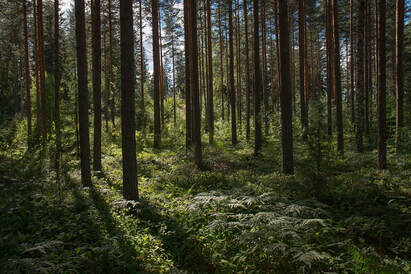|
Oregon is one step closer to allowing people to turn their bodies into soil after they die. Gov. Kate Brown signed House Bill 2574 on June 15, 2021. The bill will legalize what is known as natural organic reduction, or what some refer to as human composting. It also clarifies rules surrounding alkaline hydrolysis, known as aqua cremation. The law goes into effect July 1, 2022. OMA thanks its members for contacting their state legislators about this bill.
Human composting has begun in Washington and has just been approved in Colorado as well as Oregon. Rep. Pam Marsh, from District 5 in Southern Jackson County, who co-sponsored the bill with Rep. Brian Clem, said she initially decided to sponsor the bill because constituents in her area are interested in alternative after-death options. Marsh said the state plans to have its rules in place for natural organic reduction facilities by 2022. Cornerstone Funeral Services in Boring is an OMA contracting mortuary offering simple body disposition packages with transparent pricing for the greater Portland Area. Owner, Elizabeth Fournier, author of “The Green Burial Guidebook,” has already found a business opportunity in natural organic reduction. Her funeral service, which specializes in “green” and eco-friendly after-death services, has given clients the option of natural organic reduction since it was legalized in Washington in 2020. Fournier takes the bodies to Herland Forest, in Wahkiacus, Washington. It’s a natural burial cemetery about 100 miles east of Portland that offers natural organic reduction. Walt Patrick is the senior steward at Herland Forest, Washington. The cemetery is currently performing some of the first “human composting” burials in the country. Supporters say HB 2574 could also bring new businesses to the state. Recompose, one of the pioneering human composting companies in Washington, said it plans to open a location in Oregon within the next few years. Recompose said Oregon has a cremation rate of 74.3% and hopes that the option of natural organic reduction would help the state lower the number of fossil fuels and CO2 emissions that enter the atmosphere as a result of cremation. The company said natural organic reduction uses one-eighth the energy of cremation. In 2020, Fournier witnessed her first natural organic reduction and said it was an eye-opening experience. She said seeing the process for herself also made her more comfortable in talking to her clients about that option. It is expected to be a little more expensive than traditional cremation, but far more environmentally sustainable. Fournier hopes having the option of natural organic reduction readily available in Oregon will be a desirable option for many people. “This is Oregon! People love their parks, people love their trails, people love their nature, people love their composting and that idea that somebody can become a tree… I think that’s really thrilling for people to know that their remains can absolutely help the environment,” Fournier said. Partial credit to KOIN news for this 6-15-21 article Comments are closed.
|
AuthorOMA Trustees & Friends contribute articles for the News page. Archives
July 2023
Categories
All
Facebook Page |

 RSS Feed
RSS Feed